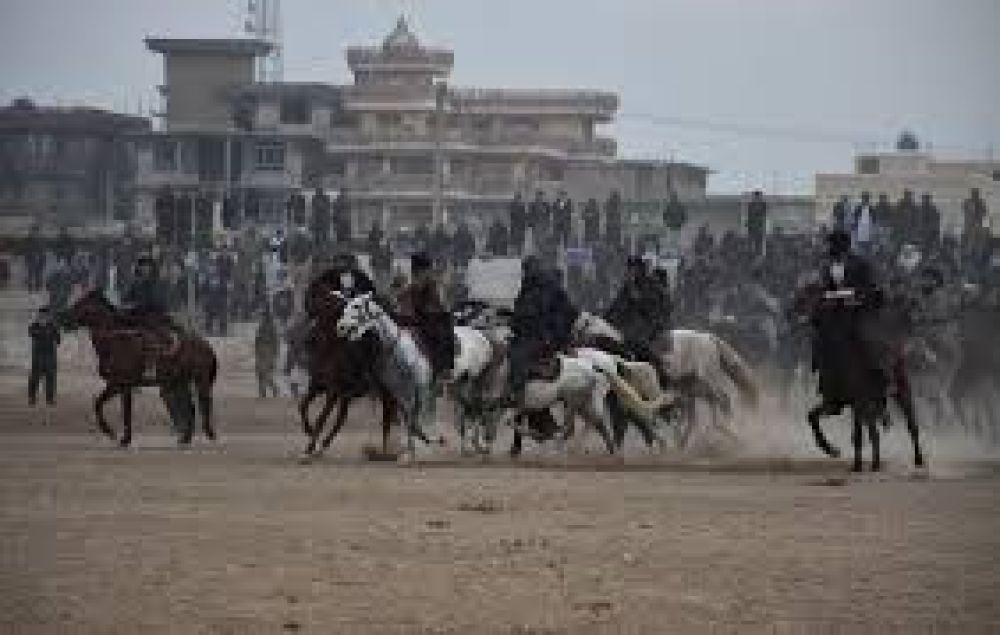

Buzkashi, literally translating to 'goat pulling' in Persian, is Afghanistan's national sport. This equestrian sport has ancient origins and is believed to have been played for centuries. The game is traditionally played by men on horseback, who vie to grab a goat or calf carcass and deliver it across a goal line.
Buzkashi is much more than a sport; it is a representation of the strength, skill, and bravery of its participants. Historically, it is said to have roots in the nomadic Turkic-Mongol tribes who would play it as both training for battle and as a measure of a man's prowess. Over time, it became a cultural mainstay in regions such as northern Afghanistan, where Mazar-i-Sharif is a well-known venue for some of the most exciting Buzkashi matches.
The city of Mazar-i-Sharif, famed for its stunning blue mosque - the Shrine of Hazrat Ali - has been one of the standard-bearers of this captivating sport. Buzkashi matches here, especially those held during the Nowruz (Persian New Year) celebrations, draw large crowds and offer an electric atmosphere that blends festivity with fierce competition.
Although Mazar-i-Sharif rose to prominence primarily through its religious significance, it has gradually become an interesting spot for tourists seeking to understand Afghanistan's rich cultural tapestry. Before the conflicts that have marred Afghanistan's modern history, Mazar-i-Sharif would see visitors come to witness its historical sights and cultural events such as Buzkashi matches.
The tourism industry in Afghanistan has faced significant challenges due to ongoing instability over the past several decades. However, there has been a concerted effort to revive the historical and cultural pride points such as Buzkashi. Local and international interest remains in the scope of cultural tourism, hoping for a stable future where the thrill of Buzkashi can become a drawcard for the country once again.
While tourism in Afghanistan has been limited in recent years, there is an emerging trend towards cultural and experiential travel, which could play a significant role in the future of tourism. People are increasingly seeking authentic experiences, and the unique spectacle of a Buzkashi match is undoubtedly such an experience.
There is potential for leveraging Buzkashi and the historical aspects of Mazar-i-Sharif in educational and cultural exchanges, which may foster safer and more controlled tourism opportunities. These programs can help spread awareness and understanding of Afghanistan's culture and traditions to a global audience.
The hope for Afghanistan's tourism lies in its peace and stability. With time and changes in the socio-political landscape, destinations like Mazar-i-Sharif may once again welcome visitors who wish to delve deep into the heart of Central Asia's cultural experiences, with Buzkashi matches offering a unique and exciting window into the nation's soul.